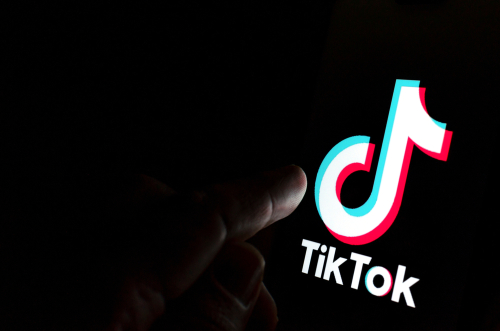The world of search is changing. Once dominated by Google, developments in AI and the growing footprint of rival platforms like TikTok are threatening to upend the market. But don’t expect Google to give up without a fight, writes Shane Foley, social strategy director, Core.
“I’ll Google it” is a common phrase heard when people are curious.
Google has been the dominant force in the search engine market for the past quarter of a century and has always been synonymous with online search.
However, the past decade has shown us that competition for attention will rise and start to challenge the status quo. In the past, there have been attempts at competition in the search engine market from players such as Bing or Duck Duck Go! However, Google’s latest challenger is not a traditional search engine competitor but a social media network.
TikTok has swept the world by storm and became the fastest social network to reach one billion users globally. In a short space of time, TikTok’s influence can be seen throughout the digital ecosystem with format copycats on Facebook, Instagram Reels and YouTube Shorts. Now we are beginning to see this influence take shape on the search landscape.
A recent survey from Search Engine Land also reveals that 51% of Gen Z females prefers TikTok over Google for search. This trend highlights the growing influence of TikTok in shaping Gen Z’s information consumption habits.
How is TikTok challenging the Search Market?
TikTok prioritise the users’ interests to create a personalised search experience. In comparison, Google prioritises a good Search Engine Optimisation (SEO) strategy, a healthy ads budget, or both.
A major driver of TikTok’s success is the algorithm driven ‘For You’ page, where the platform is designed to deliver hyper-relevant content to users.
TikTok’s approach to search is also centered around the latest product and services reviews, how-to guides, travel guides, tips and movie or book recommendations.
The platform will then retrieve an unlimited variety of video content that tends to blend entertainment, user-generated content, and discovery all presented in bite-sized video format.
This makes the search experience more engaging to prioritise and sound, this new trend in user behaviour challenges Google’s text-based approach and has prompted the search giant to adapt.
On the back of this newfound success TikTok released a new “Search Engine Widget” for Apple users in May 2023.
How is Google responding?
Make no mistake, Google is still the market leader in terms of global search engine usage boasting 85% market share.
The backbone of any successful company is the ability to adapt and evolve and Google’s search engine business model looks to be evolving at an accelerated pace inspired (or threatened) by TikTok’s unique approach to visual search.
For a start off, Google has begun to make imagery and video content within search results a key integration of the platform and is looking to develop a more interactive, personalised, and engaging experience on the search engine.
In addition, the “shoppable” search experience is becoming more and more at the centre of new features. In the US, when you search for the word “shop”, and if it is followed by the item, Google will show you visuals of products, tools, and inventory.
Google is also adapting its search and maps to feature more images and video in search results and exploring a new explore feature where users can view inspirational content beyond their original query.
Additionally visual search technology including Google Lens is starting to bridge the gap between text and image-based search, showing the importance of visual multimedia in search queries.
Planning for Social Search
Google has built an enormous reputation over the past 25 years and is generally considered a more trustworthy platform when compared to TikTok.
TikTok will be seen as the challenger brand and has a steep mountain to ascend before they can start to impact Google’s market dominance.
However, Google’s original interface has barely changed since its Beta version in 1998, until this new challenger has entered the market.
Competition inspires innovation, while both Google and TikTok continue to enhance their search platforms, the general users can look forward to a richer, more diverse, and interactive search landscape.
TikTok and Google will continue to co-exist and elevate the search experience for users in the years to come from quick entertainment to a more in-depth information retrieval.
To be effective, TikTok will thrive on entertainment-based content while Google will delve into the depth of detail. An important takeaway for this is to understand is brands must continue to tailor their content to natively fit on the platform they advertise on.
Shane Foley is Social Strategy Director, Core Investment

























